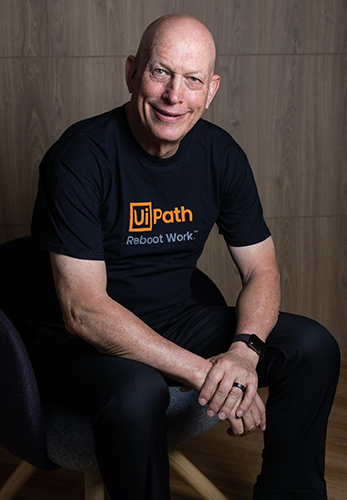Will robotic process automation be sufficient to ensure efficiency in this sector? Or is IPA called for in some sectors?
With citizens in the Asia Pacific region (APAC) being more digitally engaged than ever, public services expected to deliver digital services that can match the digital organizations they interact with daily.
Typically, the public sector deals with large amounts of manual, repetitive administrative tasks that take valuable time away from strategic work. In this aspect, software automation improves public service delivery.
Having robust digital capabilities, both from a services perspective and as a collective workforce, is also critical in boosting economic growth today. With the private sector accelerating automation to roll out digital offerings, it has become imperative for governments to likewise encourage digital upskilling and reskilling within its ranks to keep pace.
At the same time, governments and the public utilities sector need to be able to react swiftly under the threat of cyberattacks and related risks, to ensure that vital services stay online.
Hurdles to public sector automation
Owing to the stringent nature of public sector organizations and an inherent resistance to change, adoption of automation can realize numerous benefits. For example, when the University of Auckland, New Zealand started looking at robotic process automation (RPA) for cost savings, it redesigned processes to improve efficiency and reported saving 23,000 hours annually, a 96% success rate for orchestration across all processes, and a 98% client satisfaction rate for automation in finance.
To leverage and scale automation in the public sector, as the University of Auckland has done, governments must prioritize upskilling and data sharing. This can greatly improve efficiency and reduce tedious bureaucratic processes that citizens struggle to understand in this digital age.
Amidst this focus on digital resilience within the public sector, the conversation around automation has also shifted from just RPA to Intelligent Process Automation (IPA). This is to achieve comprehensive end-to-end process automation at scale instead of only focused automation through RPA.

According to IDC’s estimates, governments globally will combine trusted data sharing and IPA to provide 25% of government services proactively by 2024. This implies that most bureaucracy will be invisible to constituents, while digital transformation, automation and AI will come to the foreground as the public sector displays greater flexibility, agility and flexibility to respond to crisis.
With this digitalization there is also an increasing need for upskilling and reskilling of government workers to fill in technical job roles. Therefore, the government must collaborate with the private sector, educational institutions, and societies to create a future-ready digital workforce.
In fact, the Singapore Government’s shared services department, VITAL, has done so effectively by embracing software automation. From automating deposit creation to using AI to sift through resumes in the hiring process, VITAL has been leveraging software automation to realize its vision for every civil service officer to become a citizen developer, building robots for themselves and their colleagues using low- or no-code tools. In the latter, the use of software automation allowed HR personnel to shortlist candidates more quickly, saving time and allowing them to focus on evaluating candidates effectively.
Automation for success
The process of public sector automation involves several steps for success. Automation strategies must be holistic, scalable, and long-term, therefore requiring a digital thinking mindset.
Real transformation can only come with long-term resolve and an invested team, with support from the right external partners. This way, government and public sector organizations can quickly start seeing the benefits of digitalization.
With IPA, process automation platforms are combined to offer: capture applications; integration; API management software; messaging and event streaming software; rules-based decision automation; streaming decision automation; process mining; and modeling and architectural tools.
Automation consultants can provide support to help simplify the process of IPA implementation, by providing an end-to-end platform that combines RPA, AI, process and task mining, Cloud, API integration, and analytics capabilities while meeting the governance, security, scalability, and performance expectations required of public services.
